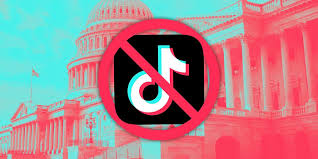On January 20, 2025, Donald Trump will once again be sworn into the White House. He will make history as the first president to serve nonconsecutive terms since Grover Cleveland in the late 19th century and will also be the first president to serve after being convicted of a felony. These past few years have been a whirlwind of firsts for American Democracy: from the oldest president to take office to the first female vice president to Trump’s recent election victory, our politics are becoming increasingly polarized and unpredictable. Nonetheless, one cannot help but feel that Trump is still an outlier. The fact that it is his legal status that makes him an outlier–something directly tied to the very government body he will soon precede over–makes his win particularly unusual. Certain items on Trump’s itinerary will be constrained by his convictions: Trump’s foreign policy meetings with Canada, for example, will depend on special permission from the country’s immigration minister because Trump cannot legally enter the country. And yet, in spite of the legal challenges he’s faced (and will continue to face), Trump’s win was decisive. One can even argue that his seemingly never ending legal battles only further endeared him to a fan base that believes the existing system actively persecutes the Republican Party. However, the deciding factor in Trump’s win ultimately had far more to do with Americans’ economic concerns than his legal status.
All four of Trump’s criminal charges were put forth over a five month period in 2023. So far, Trump has only been convicted of one crime–falsifying financial records to cover up a hush-money payment made to porn star Stormy Daniels in the final weeks of his 2016 campaign. The payment, which approximated to $130,000, was made by Trump’s personal attorney Michael Cohen. While in office, Trump attempted to avoid the taxes involved in paying Cohen back by processing his reimbursement to the lawyer as if it were an installment in Trump’s company. Trump was convicted of 34 felony counts for the crime on March 30th, 2023.
Trump’s most widely publicized case involves his alleged efforts to undermine Joe Biden’s victory in the 2020 election. Trump and his advisors are accused of spreading false information about voter fraud, calling on high ranking Republican officials to deny the results, and encouraging the events of January 6th. Trump’s third charge involves election results in the state of Georgia. According to prosecutors, Trump focused his efforts to undermine the election most intensely on Georgia, which Biden narrowly won. After several vote recounts had already been performed, Trump called Georgia’s secretary of state, Brad Raffensperger, to ask him to “find” the 11,780 votes Trump would have needed to win the state. The recording of this call is one of the main pieces of evidence used by prosecutors in the Georgia case. If this case ever goes to trial, Trump could potentially be convicted of a number of crimes related to conspiracy and forgery.
Trump’s final charge involves the theft of classified legal documents from the White House. Prosecutors accuse the soon-to-be president of stashing a number of top secret documents (which included military plans) around his Mar-a-Lago resort in Florida and attempting to share them. Trump faces a number of charges if convicted, most of which fall under violations of the Espionage Act.
In a political and economic climate in which most people believe the world is harder on them than it was on their parents, Trump’s appeals to voters as a victim of an unjust world seem to have struck a chord. We are all more likely to align with people who reflect the way we see ourselves. But the people who were most convinced that Trump’s legal charges were representative of a larger conspiracy against the Republican party were mostly already members of his support base, and thus not the ones who tipped the scale. Instead, most political analysts cited concerns about taxes and the economy as major reasons the country shifted red. This year, around two-thirds of all voters considered the economy in bad shape, compared with half of 2020’s voters. And some of Trump’s biggest gains were with Latino voters, specifically Latino men, a demographic that consistently lists economic concerns as among their top priorities. The easiest explanation for Trump’s sweeping win has more to do with the way he connected with voters over the economy than any of his personality traits.












